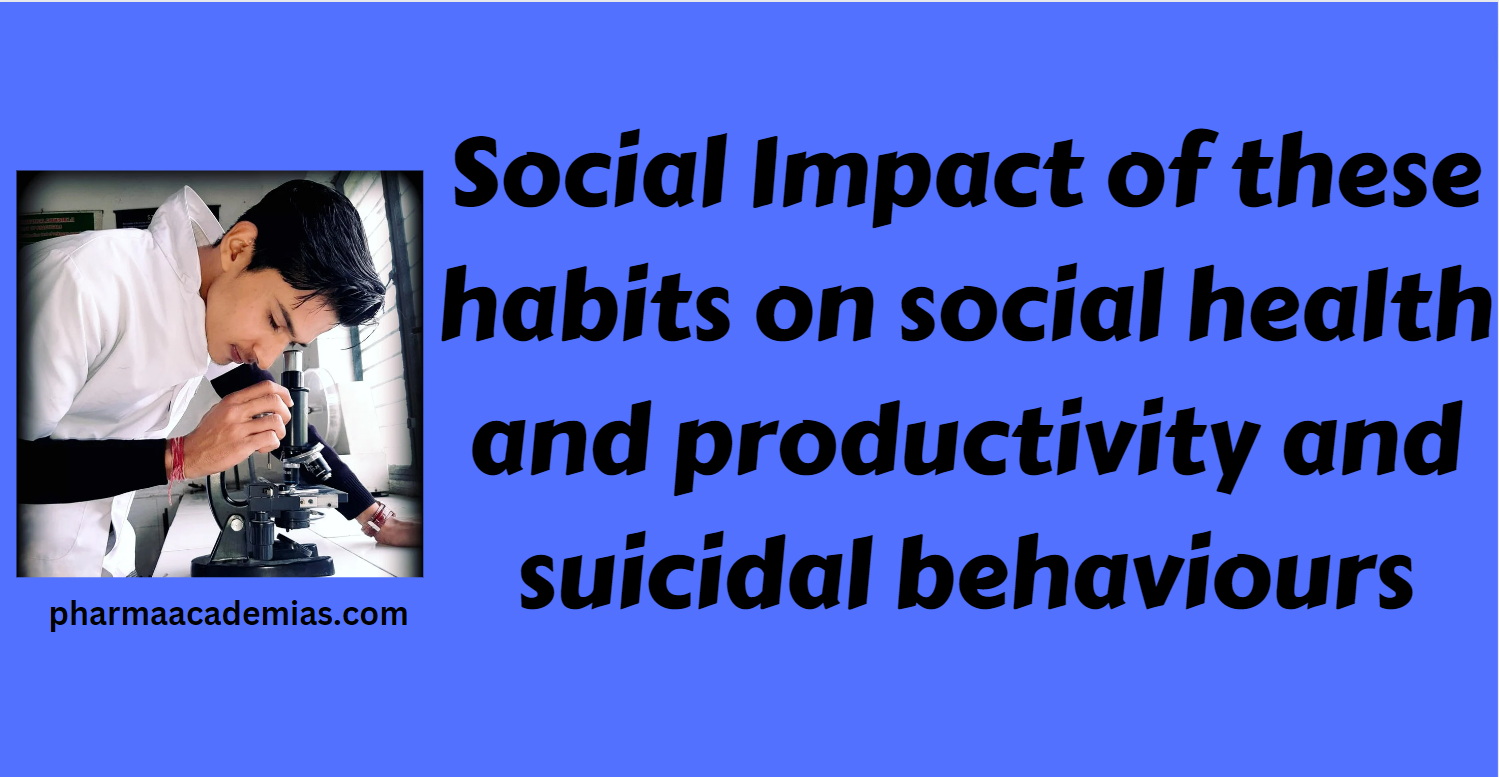The use of psychotropics, narcotics, alcohol, and tobacco products can have significant social impacts on health productivity and may contribute to suicidal behaviors. Here’s an overview of how these substances can affect social well-being:
Psychotropics
Social Impact:
– Stigma and Discrimination: Society often stigmatizes mental health conditions, commonly treated with psychotropic medications, leading to discrimination and social isolation.
– Impaired Relationships: Some psychotropics may affect mood and behavior, potentially straining interpersonal relationships.
– Social Withdrawal: Side effects or untreated mental health conditions may contribute to social withdrawal and isolation.
Productivity and Suicidal Behaviors
– Occupational Challenges: Mental health conditions can impact work performance, leading to absenteeism or reduced productivity.
– Risk of Suicidal Thoughts: Certain psychotropics may carry a risk of increased suicidal thoughts, especially in specific age groups.
Narcotics
Social Impact:
– Stigma and Criminalization: Individuals with a history of narcotics use may face social stigma and legal consequences, impacting employment and relationships.
– Family Strain: Substance use disorders can strain family relationships, leading to conflict and instability.
– Community Issues: Areas with high rates of narcotics use may experience increased crime and economic challenges.
Productivity and Suicidal Behaviors
– Occupational Challenges: Substance use disorders often interfere with work and may lead to unemployment.
– Risk of Suicidal Behaviors: Individuals with substance use disorders, including narcotics, may face an increased risk of suicidal behaviors.
Alcohol
Social Impact:
– Family Disruption: Alcohol misuse can contribute to domestic violence, family breakdowns, and child neglect.
– Social Isolation: Individuals with alcohol use disorders may withdraw from social activities, leading to isolation.
– Legal Issues: Alcohol-related offenses can result in legal consequences, impacting social standing.
Productivity and Suicidal Behaviors
– Occupational Challenges: Alcohol misuse can lead to absenteeism, reduced productivity, and job loss.
– Increased Suicide Risk: Chronic alcohol misuse is associated with an elevated risk of suicidal behaviors.
Tobacco Products
Social Impact:
– Secondhand Smoke Exposure: Exposure to tobacco smoke can harm non-smokers, contributing to respiratory and cardiovascular issues.
– Stigmatization: Smoking is increasingly stigmatized, potentially leading to social exclusion.
– Healthcare Costs: The burden of tobacco-related illnesses can strain healthcare systems.
Productivity and Suicidal Behaviors
– Occupational Challenges: Tobacco-related health issues can lead to increased healthcare costs for employers and decreased productivity.
– Link to Mental Health:Mental health conditions, associated with smoking, may contribute to an increased risk of suicidal behaviors.
The social impact of psychotropics, narcotics, alcohol, and tobacco products is multifaceted, affecting relationships, work, and community well-being. Substance use and mental health issues are interconnected, influencing social health and productivity. Efforts to address these impacts require comprehensive strategies that include prevention, education, treatment, and destigmatization of mental health conditions and substance use disorders.

